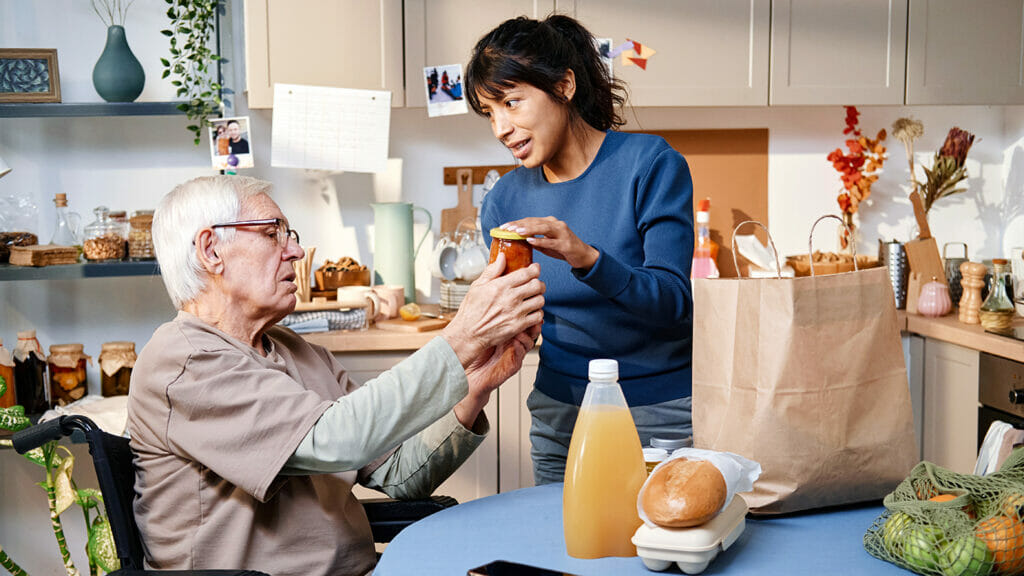

A new bill creating new restrictions on food assistance and Medicaid eligibility could have unintended consequences on Iowa’s direct care workforce, according to senior living advocates.
The Public Assistance Program Integrity Bill (SF 494), which passed both the state House and Senate and is awaiting the signature of Gov. Kim Reynolds (R), will create new income and asset eligibility requirements for food assistance and Medicaid programs. The legislation would obligate participants to submit to additional identity verification and asset testing requirements, potentially affecting the direct care workers who use those services.
Specifically, the bill would impose more stringent asset tests on every member of a household to determine eligibility for supplemental nutrition assistance program, or SNAP, benefits. Supporters said that the measure is necessary to combat fraud in public benefit programs. Opponents said that it will prevent Iowans from accessing public assistance for food.
A 2019 Direct Care Worker Wage and Benefit survey from Iowa CareGivers and the Iowa Workforce Development found that 23% of direct care workers — including personal care assistants and direct support professionals in assisted living, residential care facilities and other healthcare settings — were Medicaid beneficiaries, 17% received SNAP benefits and 28% were working two jobs.
In an opinion piece in the Iowa Capital Dispatch, Iowa CareGivers Executive Director Di Findley wrote that more direct care workers than ever are relying on those assistance programs to enable them to work. The bill, she said, would have unintended consequences at a time when there already is a direct care worker shortage.
“This is not the profile of individuals who are trying to rip off the system, but rather the picture of hard working individuals, already economically, emotionally, physically and mentally vulnerable,” Findley wrote. “Deemed ‘heroes’ during the pandemic, the last thing these vital workers need is the burden and fear of losing the very supports that make it possible for them to work.”
Iowa CareGivers asked lawmakers to consider postponing action on the bill and allocate resources to IWD to repeat its direct care worker wage and benefit survey.
If signed by the governor, the bill would take effect July 1.
Bill creates industry inequities
Another bill under consideration by the Iowa Legislature would exempt a subset of direct care workers — those who provide services to mentally or physically disabled individuals — from paying state income taxes.
Opponents of HF 264 / SF 7 said that selecting one segment of the direct care workforce sends the wrong message, is not equitable and would give a competitive edge to one provider type during an industry wide workforce shortage.
Of the 23,540 personal care aid workers in Iowa, approximately 50% would qualify for the tax exemption. If passed, the bill would take effect Jan. 1.


